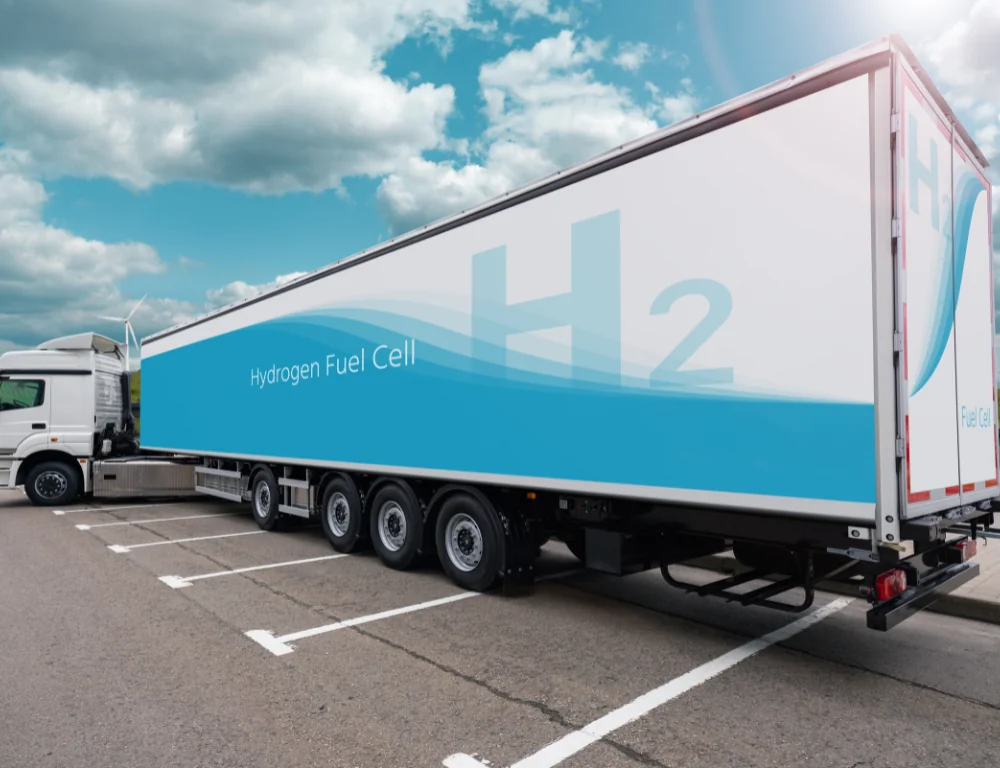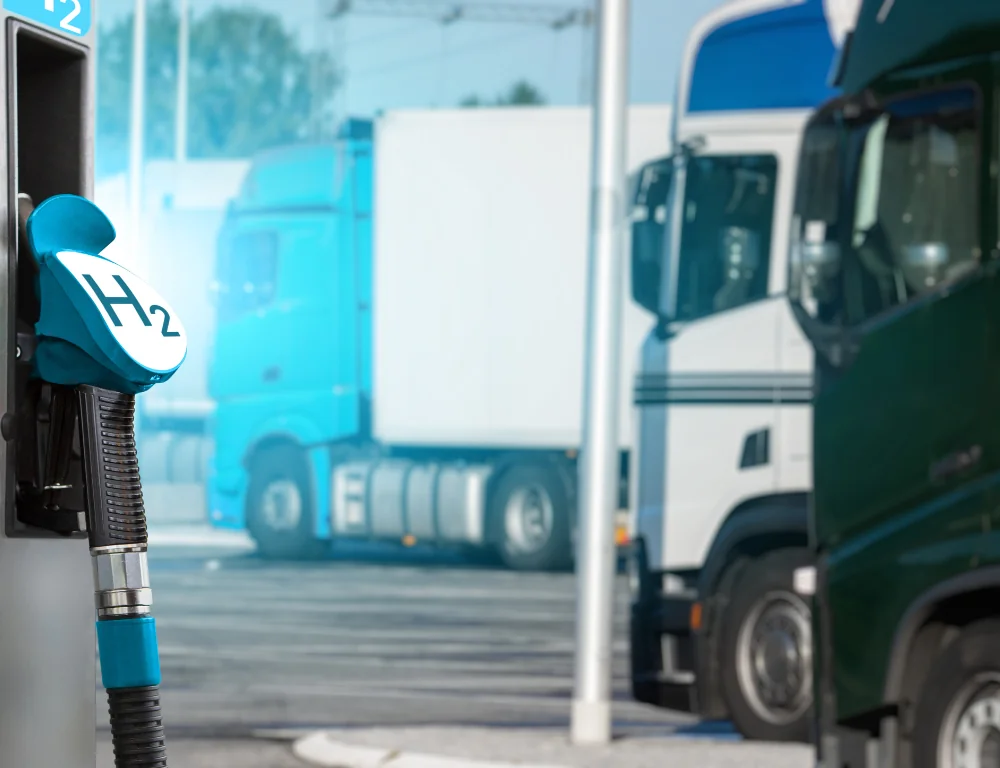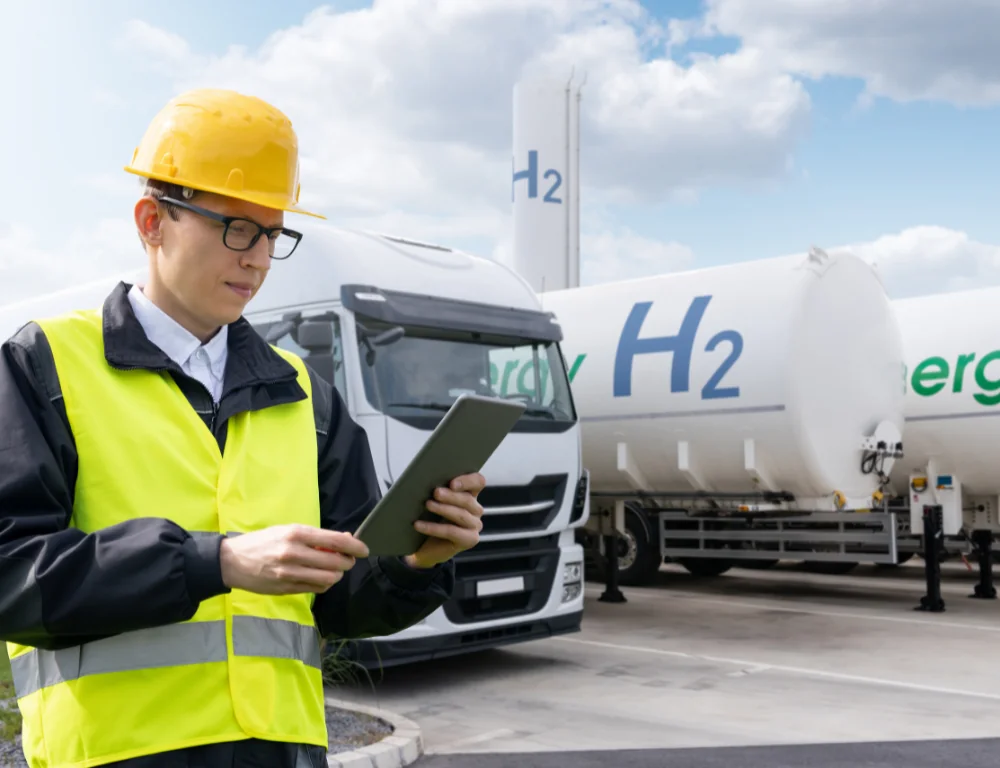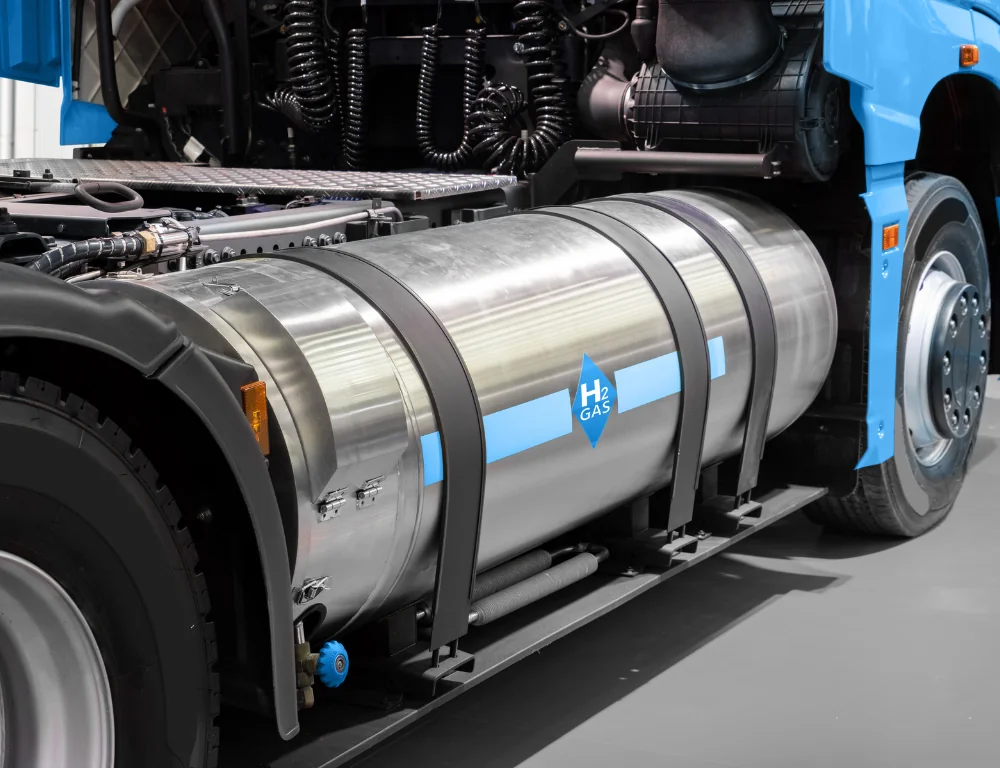What are Hydrogen Trucks
As we become more aware of environmental issues, finding sustainable ways to get around is more important than ever. Traditional vehicles that use fossil fuels contribute a lot to pollution and greenhouse gases. As a result, hydrogen fuel technology is gaining attention as a promising solution. Hydrogen fuel cells offer a cleaner way to power vehicles, with zero emissions and quick refueling times. So, how do they work? What are their benefits and challenges? And how do they compare to electric trucks? Keep reading to find out.

How Do Hydrogen Trucks Work?
Electric Powertrain and Fuel Cells:
Hydrogen trucks are fully equipped with an advanced electric powertrain. The energy needed to power the trucks is generated from hydrogen gas in onboard fuel cells. Within these fuel cells, there is a component called the fuel cell stack, which is made up of individual membrane electrodes. This uses hydrogen and oxygen to create electricity through a chemical reaction. The electricity produced by the hydrogen-powered fuel cell drives the truck’s electric motor, providing the necessary power for movement. Additionally, any excess electricity generated is stored in a battery, which can be used during moments when extra power is needed, such as during acceleration or climbing steep hills. This system ensures a continuous and efficient power supply for the truck, making it both powerful and environmentally friendly.
Battery and Energy Storage:
Hydrogen trucks also have a battery that helps when extra power is needed and when the vehicle recovers energy from braking. When the truck brakes, some energy that is usually lost is turned into electricity and stored in the battery. This stored energy can power the truck, making it more efficient and boosting its performance and range.
Hydrogen Fuel Tank:
The energy stored in a hydrogen fuel cell truck depends on the size of its hydrogen fuel tank. This is different from all-electric vehicles, where the amount of power and energy available depends on the size of the battery. In hydrogen trucks, having a bigger fuel tank means more hydrogen can be stored, which gives the truck more energy without changing how powerful it is.

Advantages of Hydrogen Trucks:
Hydrogen trucks offer numerous advantages that make them a great alternative to other trucks:
– Fuel Efficiency and Range: Hydrogen trucks have higher energy density than battery-electric vehicles, which means they are more fuel efficient and can travel longer distances. This is especially useful for long-haul transportation because it reduces the need for frequent recharging or refueling stops, which saves time and money.
– Quick Refueling: Hydrogen trucks can be refueled quickly like traditional diesel trucks. You can fill up a hydrogen truck in less than 15 minutes, making it very convenient and minimizing downtime so operations can continue running smoothly.
– Reduced Emissions and Energy Independence: Hydrogen trucks have big environmental benefits because they reduce emissions in two ways. First, they don’t produce any emissions when they run. Additionally, they don’t depend on the energy grid, which helps lower overall pollution and promotes energy independence. This makes hydrogen trucks a cleaner and more sustainable choice for transportation.
Challenges of Hydrogen Trucks:
– Infrastructure Development: The lack of extensive hydrogen refueling infrastructure hinders the widespread adoption of these trucks. Building a network of hydrogen refueling stations is costly and requires significant investment. Additionally, efficient and sustainable methods for producing, storing, and transporting hydrogen are still under development. A substantial portion of hydrogen is produced from natural gas, which diminishes its environmental benefits.
– Cost Considerations: Currently, these trucks tend to cost more to produce than diesel trucks because of the high costs of fuel cells and hydrogen storage systems required. Additionally, hydrogen fuel itself is more costly compared to diesel. While these costs are expected to decrease with technological advancements and economies of scale, they remain a substantial barrier to widespread adoption.
– Technological Challenges: Fuel cells for hydrogen trucks need to be more durable and efficient to handle long-haul trucking demands. Right now, the technology might not last as long or perform as well as needed for heavy-duty use. Additionally, storing hydrogen safely and efficiently is tricky. High-pressure tanks and cryogenic storage are common solutions but have technical and safety challenges.
– Environmental Challenges: The market acceptance of hydrogen trucks faces significant issues. The trucking industry is typically conservative and may be hesitant to adopt new technologies without clear, immediate benefits and proven reliability. To encourage the adoption of hydrogen trucks, adequate government incentives, policies, and regulations are crucial. This includes providing subsidies for infrastructure development and purchase incentives to make the transition more appealing and feasible for the industry.
Hydrogen Trucks Vs. Electric Trucks
- Cost:
Hydrogen trucks: They tend to be more complicated and cost more than electric trucks because they require additional components such as fuel cells, hydrogen storage tanks, and delivery equipment.
Electric trucks: They are considered to be cheaper to run because of their simpler technology and lower infrastructure costs.
- Infrastructure and Development:
Hydrogen trucks: they require more development for refueling and recharging vehicles.
Electric vehicles: There are more charging options for electric vehicles, making them more practical for certain companies or regions
- Fuel and Emissions:
Hydrogen Trucks: Hydrogen trucks use fuel cells to convert hydrogen into electricity, emitting only water vapor as a byproduct.
Electric trucks: electric trucks are powered by electricity stored in lithium-ion batteries, producing zero emissions during operation.
- Range and Refueling:
Hydrogen Trucks: They can support longer ranges and faster fueling. Some models offer up to 621 miles of range and can be refueled in 15 minutes.
Electric Trucks: Electric batteries are more suitable for shorter ranges and may require longer charging times.


